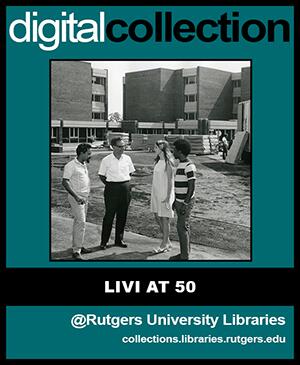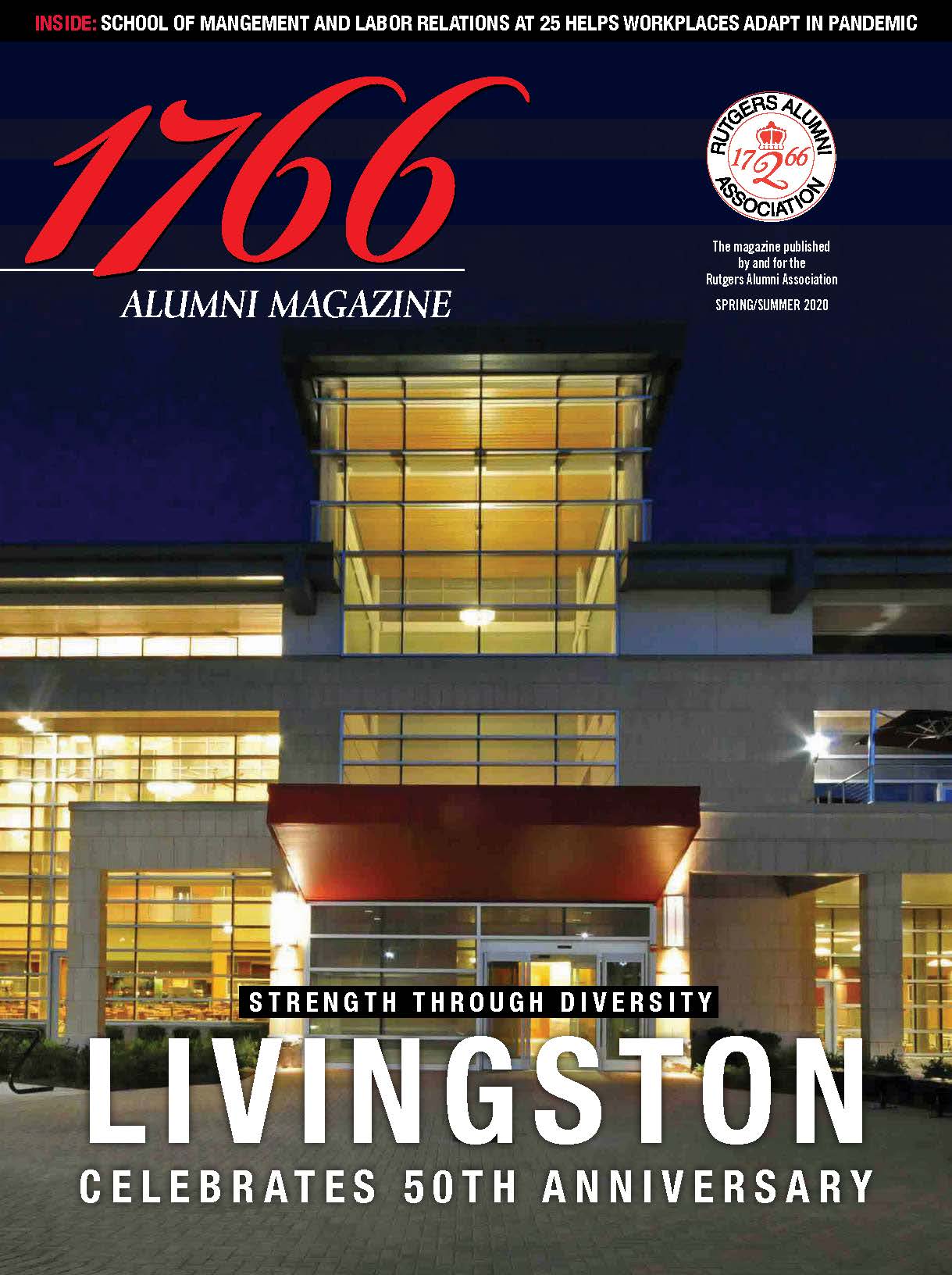In conjunction with the 50th anniversary of Livingston College, the Livingston Alumni Association, Rutgers University Libraries, and other Rutgers partners have started several projects to document the history of the college and of the anniversary celebrations.
These projects and documents include:
 Livi at 50: A Celebration of Livingston College’s 50th Anniversary
Livi at 50: A Celebration of Livingston College’s 50th Anniversary
This curated selection of archival materials and event documentation capture moments from the special event “Livi at 50.” Held at the James Dickson Carr Library on Livingston Campus on October 25, 2019, it was hosted by Rutgers University–New Brunswick Libraries and the Livingston Alumni Association. Reproductions of the historical materials were used in an exhibition on display at the event. Also includes many photos from the event.
New Digital Collection: Livi at 50: A Celebration of Livingston College’s 50th Anniversary: Rutgers University Libraries article on the digital collection.
Livi@50: A celebration of Livingston College’s 50th anniversary: Commemorative program from the Oct. 25, 2019, event (8 pages, PDF).
Libraries, Alumni Celebrate Livingston College’s 50th Anniversary: Rutgers Universities Libraries article (Nov. 13, 2019) on the Oct. 25, 2019, event.
Twitter: Livi at 50: Photos and tweets celebrating the college’s 50th anniversary and commemorating the Oct. 25, 2019, event, based on the hashtag #livi50.
Pfaff, L. G. (2019, December 18). Keeping the Rutgers’ Livingston story alive 50 years after the trailblazing college opened. Rutgers Focus.
An article on the history of Livingston College, with a focus on history preservation projects by the Livingston Alumni Association, Rutgers University Libraries, and the Rutgers Oral History Archives.
 Siederer, M. (2020, Spring/Summer). Livingston at 50: Celebrating the college built on ‘Strength Through Diversity’. 1766 [alumni magazine], 37(1), 14-19. [Full text online]
Siederer, M. (2020, Spring/Summer). Livingston at 50: Celebrating the college built on ‘Strength Through Diversity’. 1766 [alumni magazine], 37(1), 14-19. [Full text online]
When Livingston College welcomed its first students in September 1969, many of the campus’ buildings, sidewalks, and landscaping were still under construction, with piles of mud throughout, giving rise to the original name of the student newspaper: The Mud Pile. Between 1969 and 2010, when Livingston had its final commencement, the Piscataway-based college was a hub of innovation for Rutgers University. Livingston adopted the slogan “Strength Through Diversity,” which is now a foundation of the overall Rutgers University experience.


